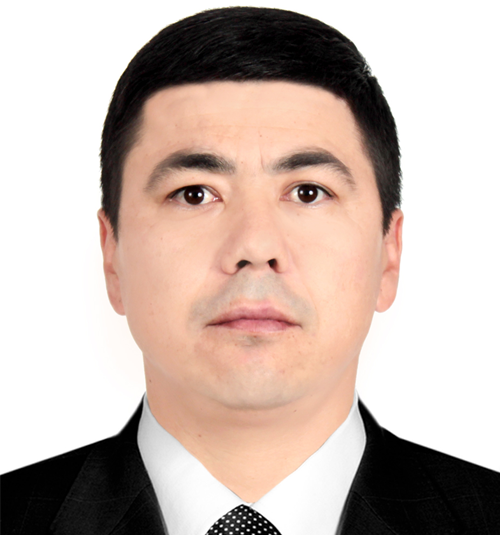
Research Areas
- Veterinary medicine
- Human and animal physiology
Personal information
Khusniddin Kuvvatov graduated from Samarkand Agricultural Institute in 2012. On 03-00-08, 2024, he received the Doctor of Philosophy (PhD) degree in biological sciences, specializing in "Human and Animal Physiology". He works as an assistant at the "Animal Physiology, Biochemistry and Pathological Physiology" department.
Job Responsibilities
- Conducting Academic Activities
- Perform laboratory, practical, and other sessions outlined in the curriculum, designed in accordance with state educational standards for higher education for all forms of learning (full-time and part-time) with a high level of theoretical, scientific, technical, and methodological preparation.
- Student Guidance
- Supervise professional practice, coursework projects, and students' independent work.
- Conduct student knowledge assessments through rating control.
- Organize extracurricular activities for students.
- Training and Development
- Prepare highly qualified specialists who meet the high spiritual and moral standards of developed democratic countries.
- Develop textbooks, educational, methodological, and illustrative materials, as well as annotate educational resources, including co-authored works with foreign scholars, as per the university rectorate's instructions.
- Supporting Educational Institutions
- Participate in preparing necessary educational and methodological literature requested by non-governmental educational institutions.
- Mentoring Talented Students
- Work with talented students, prepare them for participation in Olympiads and competitions, including the "Istе'dod" Fund contest. Improve methods of students' independent learning.
- Optimizing Learning
- Take measures to increase the volume of independent study by optimizing classroom activities.
- Scientific Research
- Conduct scientific research according to the approved plan, discuss completed research, implement results in production, and recommend scientific works for publication.
- Ensure effective integration of education, science, and production.
- Student Research Supervision
- Supervise students' research work.
- Pedagogical Excellence
- Study, summarize, and disseminate the experiences of seasoned educators.
- Introduce new pedagogical technologies.
- Modern Tools and Technology
- Utilize modern technical tools and instruments for personalized and independent learning during classes.
- Knowledge Requirements
- Be aware of relevant laws, Cabinet of Ministers' resolutions, ministry orders, university rector's directives, and the department's annual and long-term pedagogical plans.
- Qualification Requirements
- Possess professional and organizational skills necessary for teaching.
- Have expertise, experience, and tenure in education, with relevant knowledge and skills in the field of activity.
- Hold a higher education degree.
- Exhibit exemplary personal qualities: intelligence, culture, creativity, politeness, initiative, responsibility, independence in decision-making, decisiveness, and the ability to achieve the institution's strategic goals while performing duties conscientiously.
Work Experience
2008-2012 - Student of Samarkand Agricultural Institute
2012-2014 - Master of Samarkand Agricultural Institute
2014-2017 - Assistant of the Department of Animal Anatomy, Physiology, Surgery and Pharmacology of Samarkand Agricultural Institute
2017-2018 - Assistant of the Department of Animal Physiology, Biochemistry and Pathological Physiology of the Samarkand Institute of Veterinary Medicine
2018-2021 - Assistant of the Department of Animal Physiology, Biochemistry and Pathological Physiology of the Samarkand Institute of Veterinary Medicine
2021-2022 - Doctoral student of the Department of Animal Physiology, Biochemistry and Pathological Physiology of the Samarkand Institute of Veterinary Medicine
2022 -2024.yy - Doctoral student of Samarkand State University of Veterinary Medicine, Animal Husbandry and Biotechnology
2024 - h.v. - Assistant of the Department of Animal Physiology, Biochemistry and Pathological Physiology of the Samarkand State University of Veterinary Medicine, Animal Husbandry and Biotechnology
